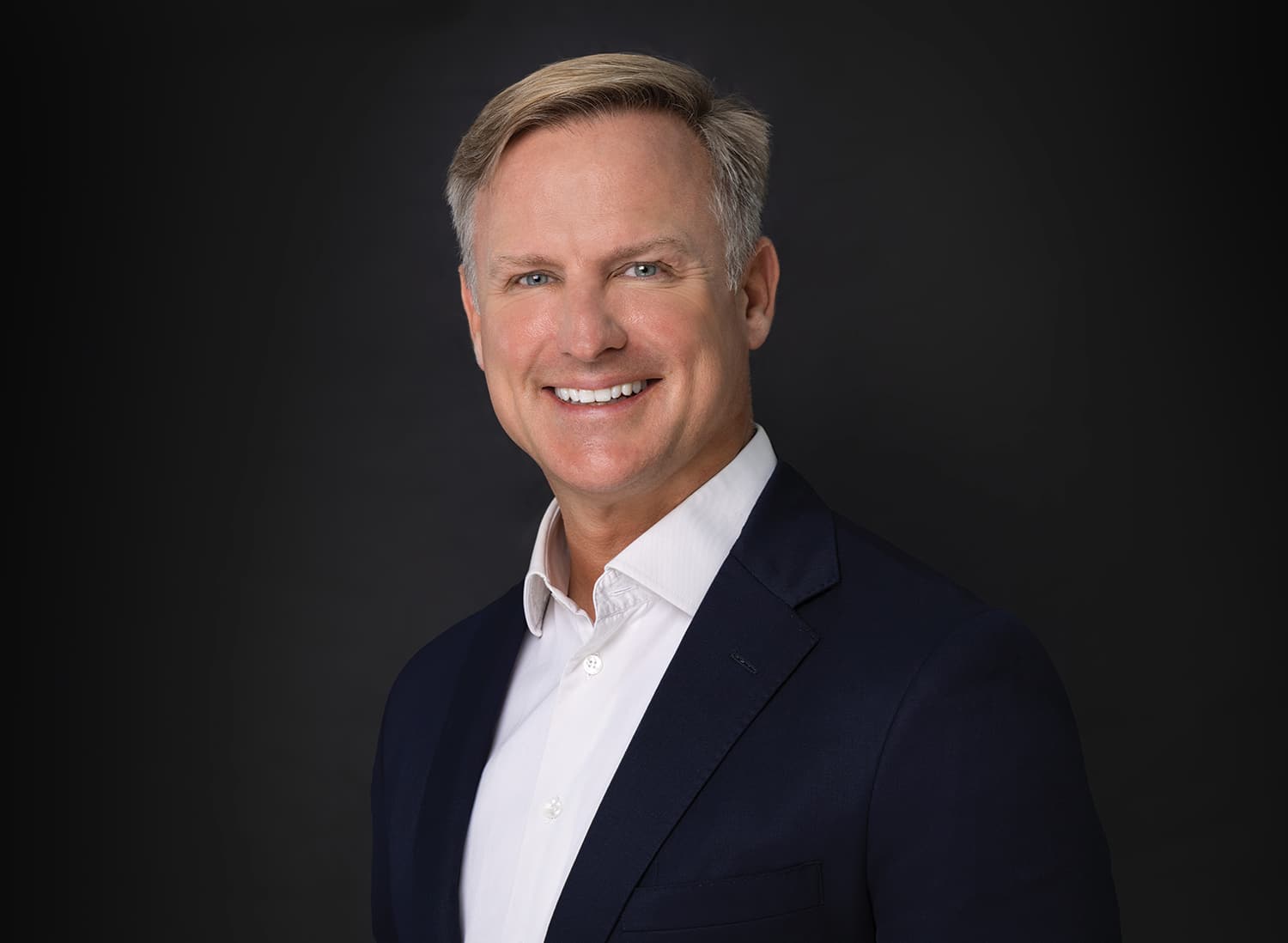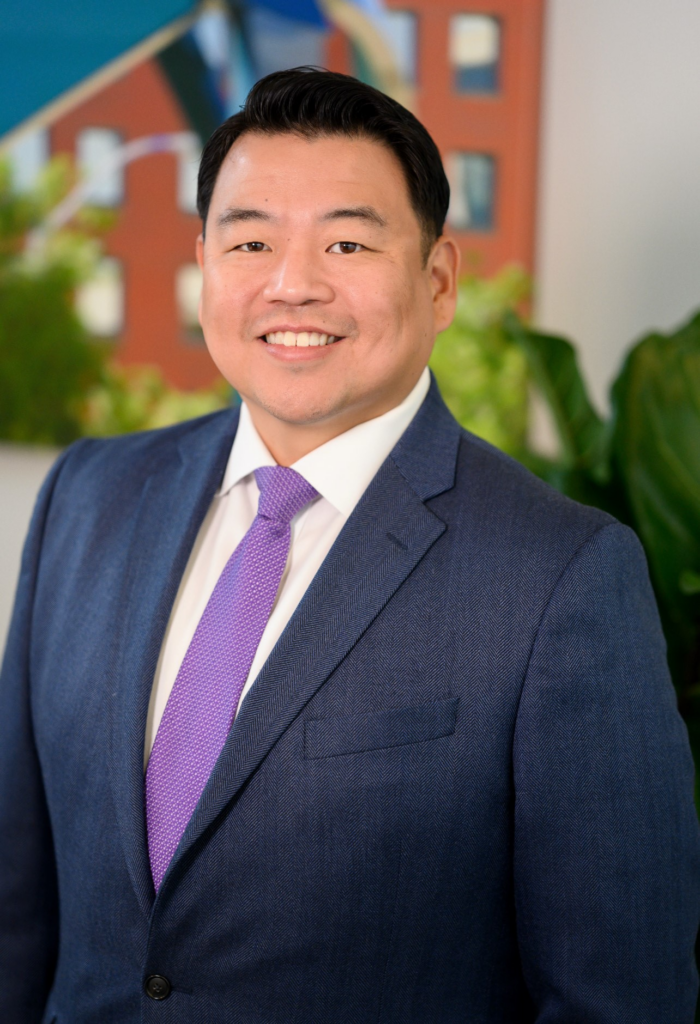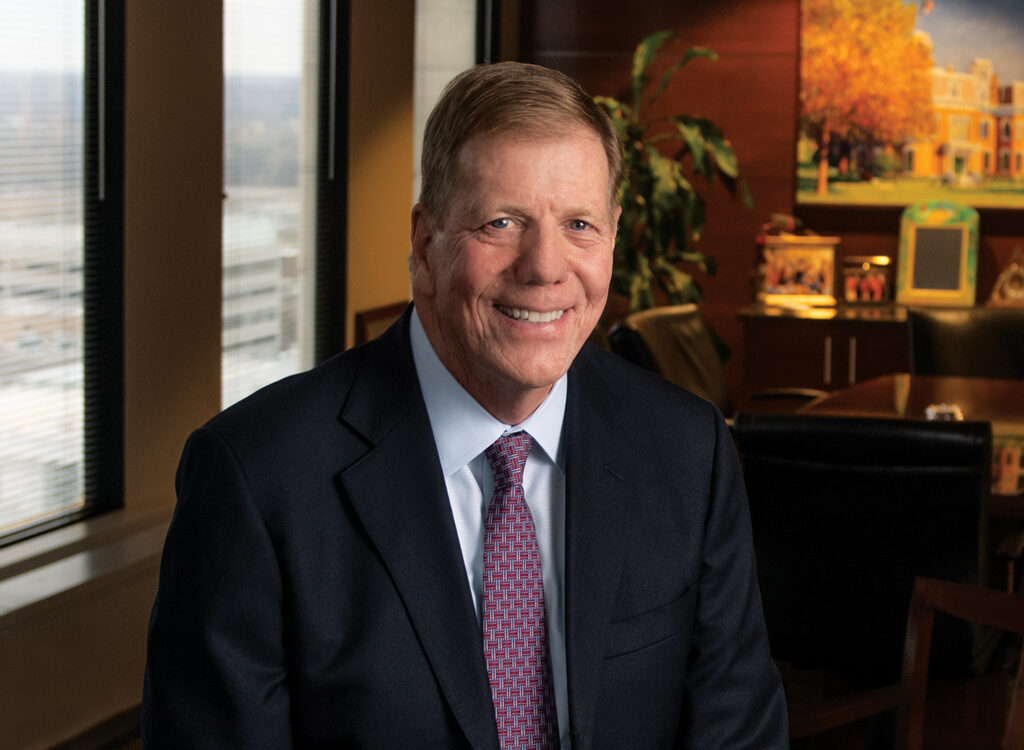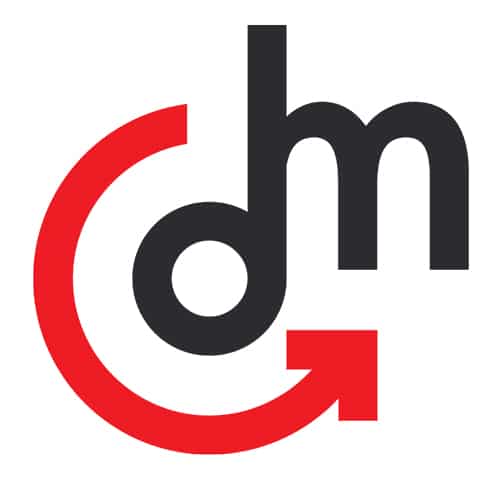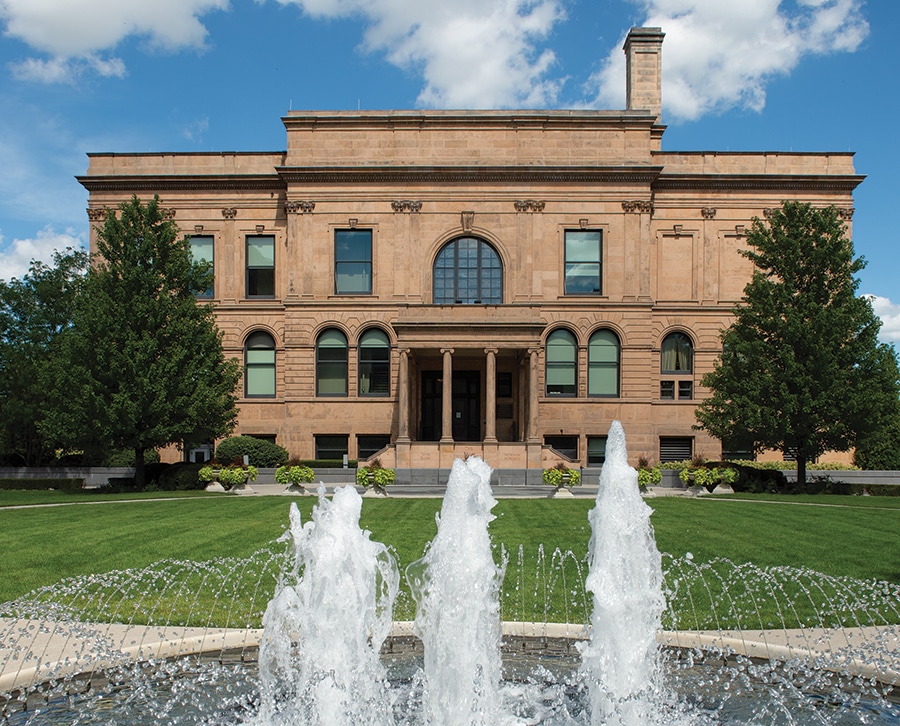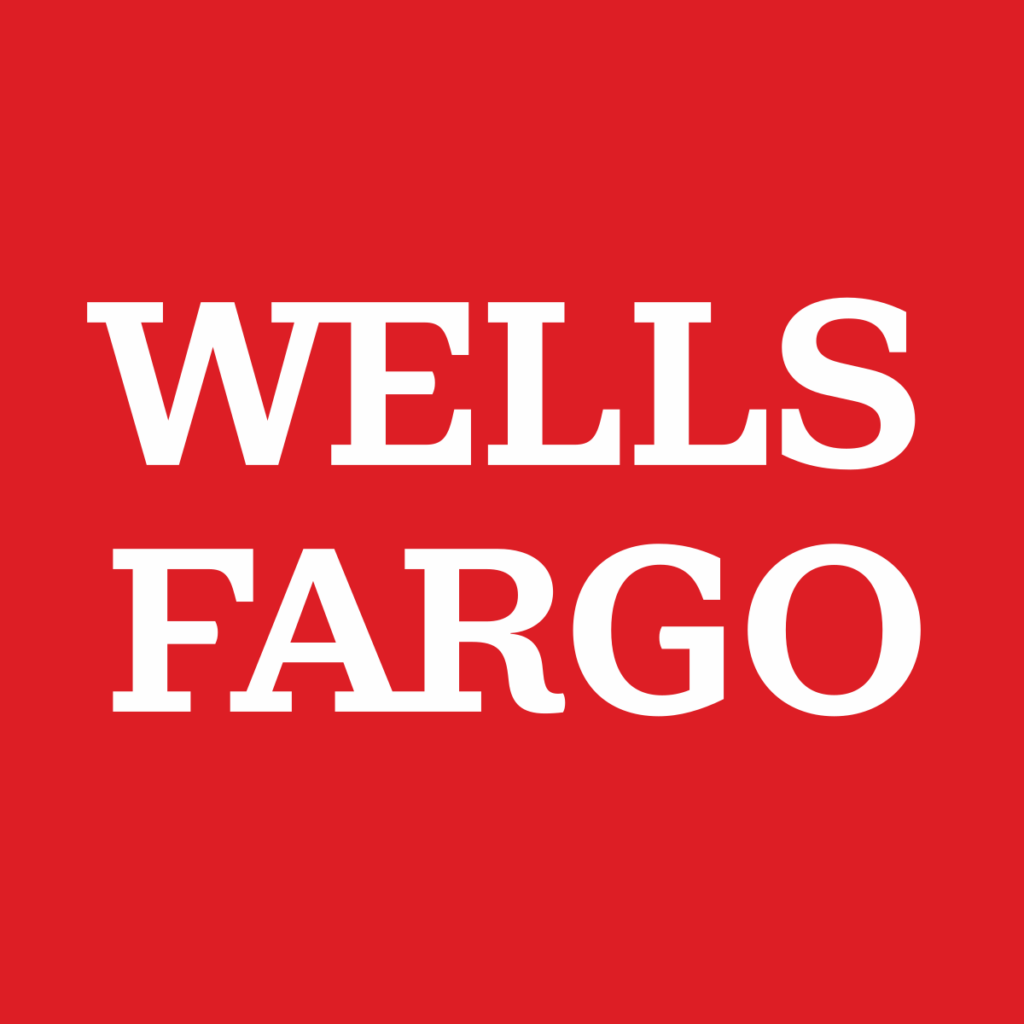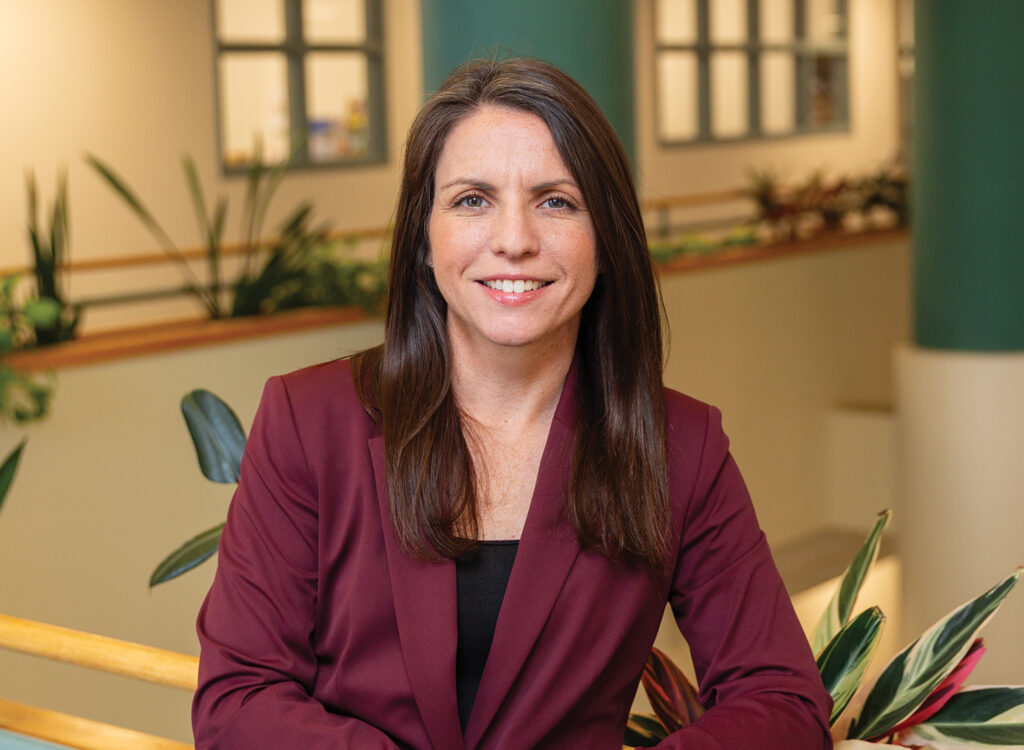A Closer Look: Matt Hansen
CEO, Growers Edge
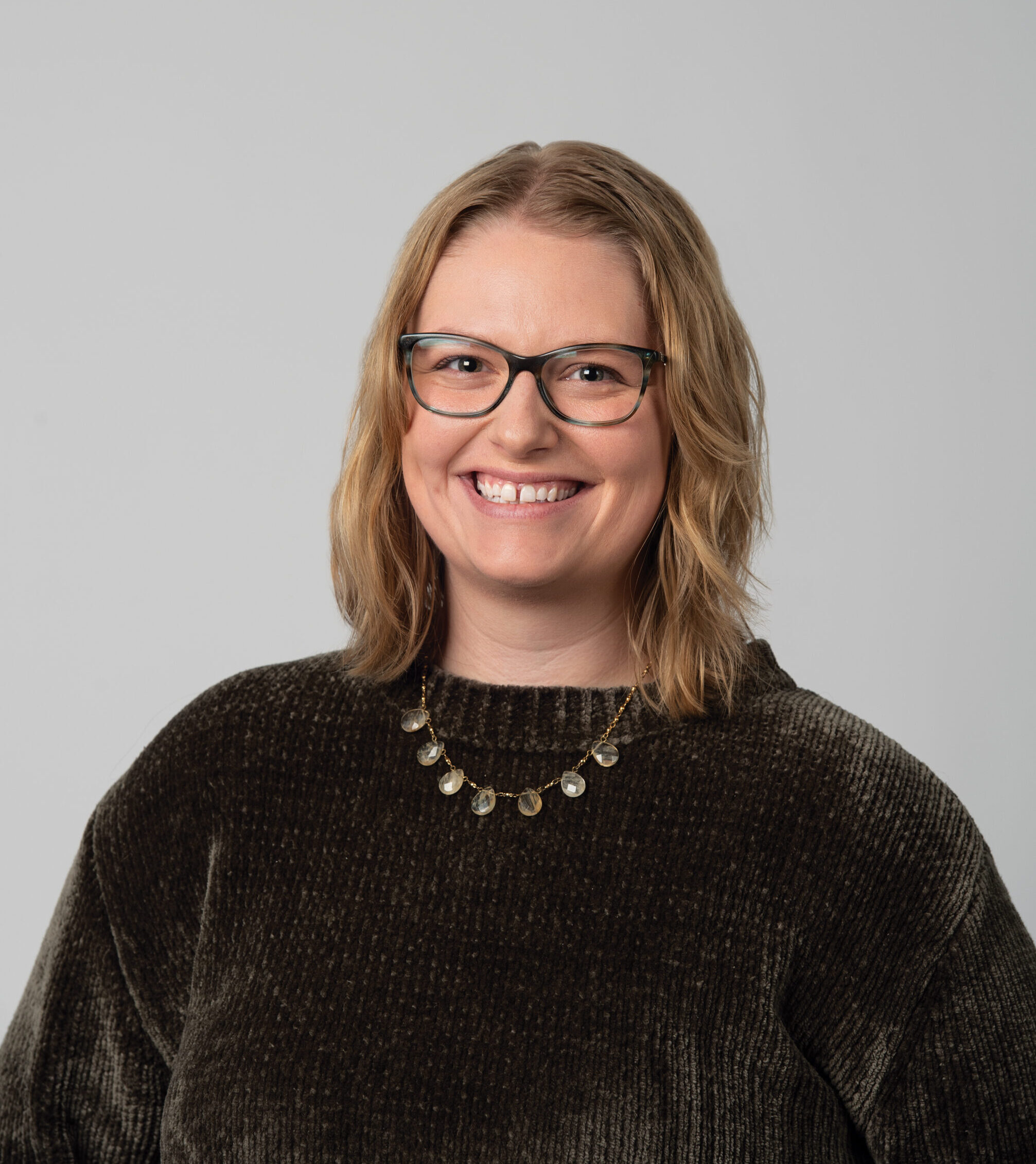
Sarah Diehn Oct 18, 2024 | 6:00 am
7 min read time
1,607 wordsA Closer Look, Ag and Environment, Banking and Finance, Innovation and EntrepreneurshipMuch of Matt Hansen’s nearly 30-year career working with financial services companies happened abroad, including in Austria and England. Originally from Texas, he acquired his sense of “wanderlust” from his grandmother, the matriarch of the family.
“She traveled all over the place. At 84, she was riding elephants in Kathmandu,” Hansen said. “I really wanted to get out and see the world, and I had a career path that allowed me to do so.”
He worked as a banker before launching his travels with Cerberus Capital Management, a global private equity firm. The firm takes a hands-on approach to the companies it invests in, sending in Hansen and others to work alongside the teams as senior
managers.
But Hansen recognized that he was spending more of his time working to get a company growing, the part of leading a business that was meaningful to him. He sought to change that when he pursued the CEO opening at Johnston-based Growers Edge.
“Instead of spending 90% of my time to get to the 10% of my time that I found to be the most rewarding and enjoyable, this was a situation where 90% of my time would be spent on the meaningful, enjoyable aspects,” he said.
Growers Edge, a fintech startup serving the agriculture industry, started in 2016 as a federal crop insurance company. Since then it has grown several financial products and services to help ag retailers, manufacturers and farm mortgage originators support farmers across the country.
Hansen, who started leading the company at the beginning of this year, said the company’s mission of helping farmers be more innovative and sustainable aligns with his career goals.
“Making the world a better place is pretty inspiring at this stage of my career,” he said.
He now lives in Des Moines, where he said all the “great stereotypical things you hear are true.”
“Des Moines is a wonderful place. The Midwest makes me proud of and optimistic for America’s future,” he said.
Get to know Hansen more below.
This interview has been edited for clarity and length.
What were some of your biggest takeaways from your time going into different companies as an operator?
Creating real value for all stakeholders in the business and your co-workers from inside a business is very direct. It’s very profound. From the board level, or a consultant, or an investor even the most hands-on investors are consultants. It’s really eye-opening once you’ve been an operator how much distance there is between people inside the business and people outside the business. As an investor, you might be responsible for a half-dozen, dozen different things and you can’t really think about and focus on the one mission of the one business and how to create value and how to grow it. I have a bit of an obsessive nature — I enjoy that. I like going to bed, dreaming, waking up thinking about how to make Growers Edge more valuable, how to create a better, more rewarding working environment, attracting new talent, developing existing talent. My obsessive workaholic nature really lends itself to operational value creation.
When you joined Growers Edge, what did you find unique or interesting about the company?
I take my hat off to my predecessors and the team. It is very resilient. It is a business that has been able to pivot. At its start, it was basically federal crop insurance, which is the definition of a commodity product. That’s a sort of very large-scale oligopoly, and when you’re selling a commodity product, they lend themselves to that. But the genius was to take that data and repurpose it to develop a category-defining product in crop plan warranty. Nothing has gone wasted, I would say. From the federal crop insurance days, we were able to train models on millions of acres of Risk Management Association regulated insurance data sets. And now we’ve got our post-harvest accuracy on yield predictions down to 4% to 6%. If we hadn’t been on that journey at all, we wouldn’t have had the data or built the analytical rigor and strength to create the crop plan warranty, and that’s the product that found product-market fit and traction and we’re seeing growth.
What stage of growth is Growers Edge in?
Where we are as a business is a lot of fun because there’s different stages in the company’s life cycle. There’s an idea, and then you develop some products and then you’re hoping it has product-market fit and traction, and you’re hoping you can price it in a win-win manner. We’ve made it past those thresholds, we have product-market fit and now we’re seeing the beginning of that hockey stick revenue growth. To be on that journey and be really part of the team, not looking in the window at a team, not keeping tabs on this and a dozen other teams, it’s also interpersonally rewarding.
What role does the crop plan warranty product play in helping farmers be innovative?
The crop plan warranty provides growers with downside protection when they adopt new or recommended solutions from our retailer or manufacturing partners. It delivers per-acre payouts back to farmers if their yields are lower than their benchmark. If they wanted to try a new product or practice — and by and large all of that is better for the environment — the guarantee that your yields aren’t going to deteriorate from trying the new thing is what gets them over their risk aversion and inhibition to make that positive change.
Agriculture is an industry where I feel like the technology products and practices have gotten ahead of the financial services and solutions that underpin it, and in other industries it was the other way around. I think there’s such a great opportunity here to get the on-the-ground practices underpinned with the financial products to get farmers to utilize a lot of the technologically more advanced developments, and eliminating risk aversion is the way to do that.
It’s not like farmers aren’t aware. Ninety percent are on record as having been aware of sustainable farming practices, but adoption is still pretty low because of that perceived risk. They’re hesitant to switch without that certainty on yield improvement or other benefits, and the crop planning warranty provides those.
If the main thing holding us back from more sustainable farming practices is perceived risk and we have the tool to reduce that risk and unlock adoption, I feel like we’re the missing piece of the puzzle. As we grow, we’ll reach a tipping point, so I’m very optimistic about our future but also the future of farming for those reasons.
What do you see in the agriculture industry that gives you that sense of optimism?
Farmers are very sophisticated. They’re not afraid of technology, like you’re right on the cutting edge globally, but they are very risk-averse and they have long memories. Those two things — intelligent, sophisticated, large, but very, very risk-averse, that is the purpose of fintech, and I think there’s a lot of room for development just to get ag caught up with the rest of the sectors of the economy. Just to draw a stark contrast, when you look at residential mortgages, you have companies like Zillow, or like Rocket Mortgage, or like Guaranteed Rate. It’s a very different feel and process in ag, and I think there’s an opportunity to basically follow that playbook. There’s good reasons why ag finance hasn’t developed in that way, but I still think that there’s an enormous opportunity and a place for it, and I think we’re pretty well positioned to go after it.
What level of competition do you see in this space?
A little bit. I think they’re attacking different parts of it. But again, it’s enormous and there’s room for several. I don’t know that there’s specifically fintech for ag. I think that there are real estate transaction facilitation engines, and that involves evaluations and other data gathering. I think there are people involved in payments and programs and IT and enterprise resource planning companies, which touch on financial services, but no one’s going right at it in the way that we are. I think that given both the insurance data from our previous iteration, as a federal crop insurance company and the fact that we’ve been able to train our models, gives us a pretty good barrier to entry in a nice moat.
How does Growers Edge approach team building as a largely remote team?
There’s a lot that goes into it. The onboarding process, team exercises, we have regular all-employee video calls where we gather as many people as we can in the office. Having distributed employees is a strategic advantage because a lot of the retailers and manufacturers want to meet people in person, so having people that sit and cover different drivable regions is an important go-to-market advantage. It’s a tremendous amount of effort from our HR team. There’s always something going on to tie people together. I didn’t know how it was going to be growing up during COVID, but it’s incredibly cohesive. It was one of the things I didn’t want to mess up. There’s a lot of people in my generation who might have been like, “Everyone back in the office,” and then I just saw how well it was actually working. Who would want to mess this up?
At a glance
Hometown: Houston, Texas
Education: Bachelor’s degree in finance from University of Texas-Austin; joint Master of Business Administration from London Business School and Columbia Business School.
Hobbies: Surfing, snowboarding, sailing, waterskiing, cricket, live music, reading and church activities

Sarah Diehn
Sarah Diehn is digital news editor and a staff writer at Business Record. She covers innovation and entrepreneurship, manufacturing, insurance, and energy.
